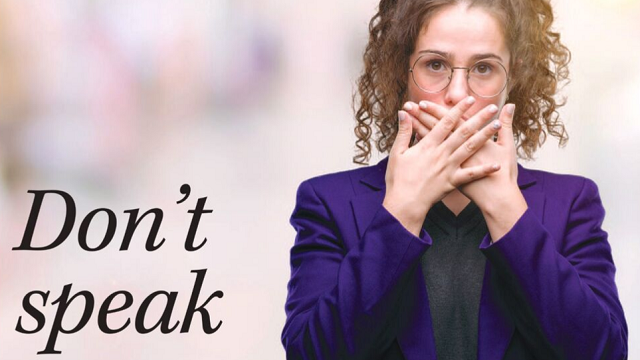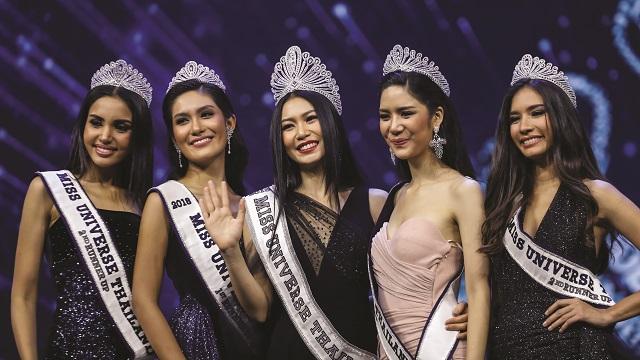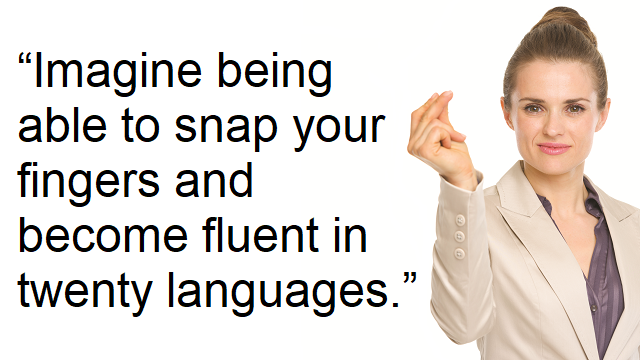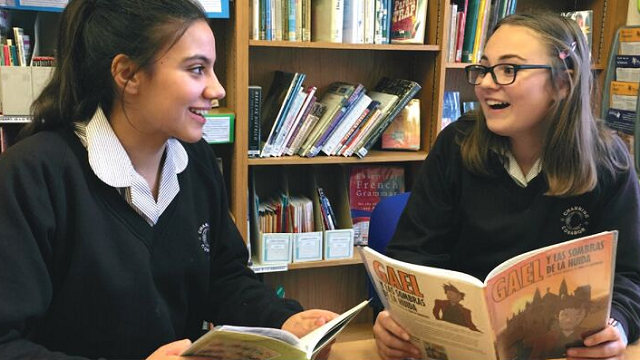-
QUALIFICATIONS
- For Linguists Worldwide
- For UK Public Services
- Preparation
- Policies & Regulation
-
MEMBERSHIP
- Join CIOL
- Membership grades
- NEW for Language Lovers
- Chartered Linguist
- Already a member?
- Professional conduct
- Business & Corporate Partners
-
ASSESSMENTS
- For Second Language Speakers
- English as a Second Language
-
TRAINING & EVENTS
- CPD, Webinars & Training
- Events & Networks
- CIOL Mentoring
-
NEWS & VOICES
- News & Voices
- CIOL eNews
- CIOL Awards
- The Linguist
- Jobs & Ads
-
RESOURCES
- For Translators & Interpreters
- For Universities & Students
- Standards & Norms
- CIOL & AI
- APPG
- In the UK
- UK Public Services
- Find-a-Linguist
Rewriting diversity
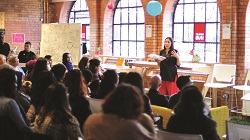 In the under-representative world of publishing, can a mentorship for a minority ethnic translator make a difference, asks Miranda Moore
In the under-representative world of publishing, can a mentorship for a minority ethnic translator make a difference, asks Miranda Moore
It has been five years since journalist Danuta Kean published a report on the severe underrepresentation of black, Asian and minority ethnic (BAME) people in the British literary industry. In addition to a legacy of “white male elitism” that has led to structural inequalities and unconscious bias in publishing, a lack of books in translation was highlighted. Initiatives such as the Man Booker International Prize, which rewards the winning writer and translator with an equal share of the £50,000 prize, were praised for beginning to address the issues, but change has been slow.
The first translator to win that prize was a white woman: Deborah Smith. In some ways, this reflects the uncomfortable realities of the industry – something that will not have been lost on Smith, who had established Tilted Axis Press a year earlier with the specific aim of increasing diversity in publishing, partly by focusing on translations from Asian languages.
Tilted Axis is now “putting our money where our mouth is”, she says, by funding a National Centre for Writing (NCW) mentorship programme for an emerging BAME literary translator. Explaining the need for the initiative, which receives additional funding from Arts Council England, she told me: “The vast majority of translations published in the UK are by white authors and white translators.”
Part of NCW’s Emerging Literary Translators Mentorship Programme, the six-month scheme is now in its second year. In addition to ongoing feedback and support from their mentors, the seven NCW mentees attend a weekend residential at the organisation’s Norwich campus, with talks on subjects such as negotiating contracts and managing a portfolio career; face-to-face work with their mentors; and the chance to pitch an idea to a publishing company. They also receive a bursary and have the chance to showcase their work at the London Book Fair through an anthology of their translations.
Programme Manager Sarah Bower explains how the mentorship came about: “We realised there are people out there who are interested in a career in literary translation but don’t know how to begin, and feel excluded because they don’t see their peers among established translators. So we wanted to do something to encourage those people to join the translation community.”
Mentees are selected by their mentors following an initial screening by NCW. For the Tilted Axis Mentorship, this role has been fulfilled for the first two years by Jeremy Tiang, who previously mentored with the Singapore Apprenticeship in Literary Translation (SALT) and the American Literary Translators Association. “The work Deborah was doing to extend the reach both of translation itself and also of the range of people who get to translate was great. I was very willing to be involved,” he says.
As with other mentorships, the areas covered depend on a mentee’s needs, usually including a combination of editing and industry knowledge. The obvious difference with this mentorship is the focus on the particular challenges facing BAME translators. “I’ve been able to support them in ways that maybe a translator of a different background wouldn’t be able to, because I’ve been through these challenges myself,” says Tiang.
Barriers to inclusion
In an industry where people of colour feel “very isolated”, according to Kean, “especially when they are at launches and the only other BAME people are serving drinks,” it is not surprising that many do not see publishing as an industry for them. For the 2018 Tilted Axis mentee, Kavita Bhanot, this contributes to a lack of confidence that can make it difficult for BAME linguists to enter the industry. “A lot of the time people have the language skills, and other kinds of knowledge as well, but don’t see how that’s valuable,” she explains.
While Bhanot learnt to read Punjabi as an adult, only using it verbally as a child, many children of Punjabi heritage growing up in the UK learn to read and write the language at weekend classes (often in the gurdwara) or at school, some up to GCSE level. She observes that most of them “go on to abandon or ‘forget’ that knowledge because they don’t really see how it’s valuable or useful, or how there’s a place for it in the world.”
Literary translators tend to take an academic route into the field, so the fact that BAME people often acquire their language skills in alternative ways means that they may not always fit industry expectations. There are, of course, wider societal inequalities that mean fewer BAME people go to university. Bhanot believes that providing alternative learning spaces could make a difference. ”There’s not enough spaces for people to learn outside of universities – and there’s nowhere in the UK that you can study Punjabi language and literature at university – so I’m doing some work, with the suppport of the National Centre for Writing to set up Punjabi summer schools and workshops,” she says.
As a writer, Bhanot has long been interested in literary translation. In particular, she wanted to translate a friend’s short stories from Hindi into English. ”I might have continued to postpone starting to translate for a long time. Applying for and getting the Tilted Axis Mentorship pushed me to just start translating. It built my confidence and gave me permission to continue, as well as providing practical advice,” she says.
There was guidance on where to send work to, who to approach and how to find opportunities, as well as an ongoing relationship with Tiang once the scheme had ended. “Through this process I had a way of getting into networks and connecting to people – opportunities I wouldn’t normally have,” she adds.
They also discussed the expectations and norms that may be biased against BAME translators, particularly those translating from heritage languages. “What we want to translate and the way that we translate may be different,” explains Tiang. “When I’m working on a book from Singapore, I often want to use a Singaporean English register, and similarly Kavita wanted to translate in an Indian English register. We talked about how editors might push back on that and ways to convince them that this is a perfectly valid form of English. These sorts of conversations can be intimidating to have with editors, so it’s about validating these feelings and giving translators the confidence to say ‘This may be “non-standard” but it is valid’.”
The accepted standard of translating only into one’s native language can also be problematic for heritage language speakers. For Tiang, who grew up in Singapore in “an environment that wasn’t completely English-speaking”, questions early in his career about his native language were “complicated” – ‘judgemental’, even, given his evident fluency in English, the target language.
Deep-rooted problems
“Ultimately the lack of diversity in the literary translation industry reflects the lack of diversity in the publishing industry and, in many ways, reflects the wider issues in society. These issues need to be addressed by translation as a whole and society as a whole,” says Tiang, acknowledging the limits of the programme.
Officially, the mentorship helps just one person a year, with the current winner, Yan Chen, as the second beneficiary. However, Tiang has also supported several of the unsuccessful candidates. Furthermore, a programme that raises awareness of systemic, societal, cultural and historical barriers to inclusion, and increases the visibility of marginalised groups within a field, can have a much broader impact.
“Putting one more BAME translator into the community when there are hardly any has a knock-on effect in terms of saying, ‘Yes, people from this type of background can also do this’,” explains Tiang. “It’s about who is translating currently and therefore what the publishing industry thinks of as a translator. So it’s really about being taken seriously by the publishing industry and being visible in a kind of ‘a translator can also look like this’ way.”
The hope is also that the mentees will carve a path for others to follow. “Together with Tilted Axis Press, we wanted to do more to encourage a diversity of voices in literary translation. Alumni of the scheme are able to encourage and advocate for others, and over time, we’d hope to see better representation,” explains Bower. “I’d like to see the people that we mentor going on to translate books and build their reputation; I’d like to see them reaching out to other people who might want to enter the world of literary translation; I’d like to see them going as translation ambassadors into schools. I think it will cascade down as it becomes more established.“
Bhanot is already making a start, with initiatives such as Punjabi summer schools. Her Literature Must Fall symposium on decolonising translation, a one-day event in September 2019, “was very well attended,” says Tiang. “I heard it raised a lot of visibility for different modes of translation, which shows how one person can have an effect.” One scheme alone can’t resolve long-standing inequalities, perhaps, but bit by bit, it can make a real difference.
More
The Chartered Institute of Linguists (CIOL), Incorporated by Royal Charter, Registered in England and Wales Number RC 000808 and the IoL Educational Trust (IoLET), trading as CIOL Qualifications, Company limited by Guarantee, Registered in England and Wales Number 04297497 and Registered Charity Number 1090263.



